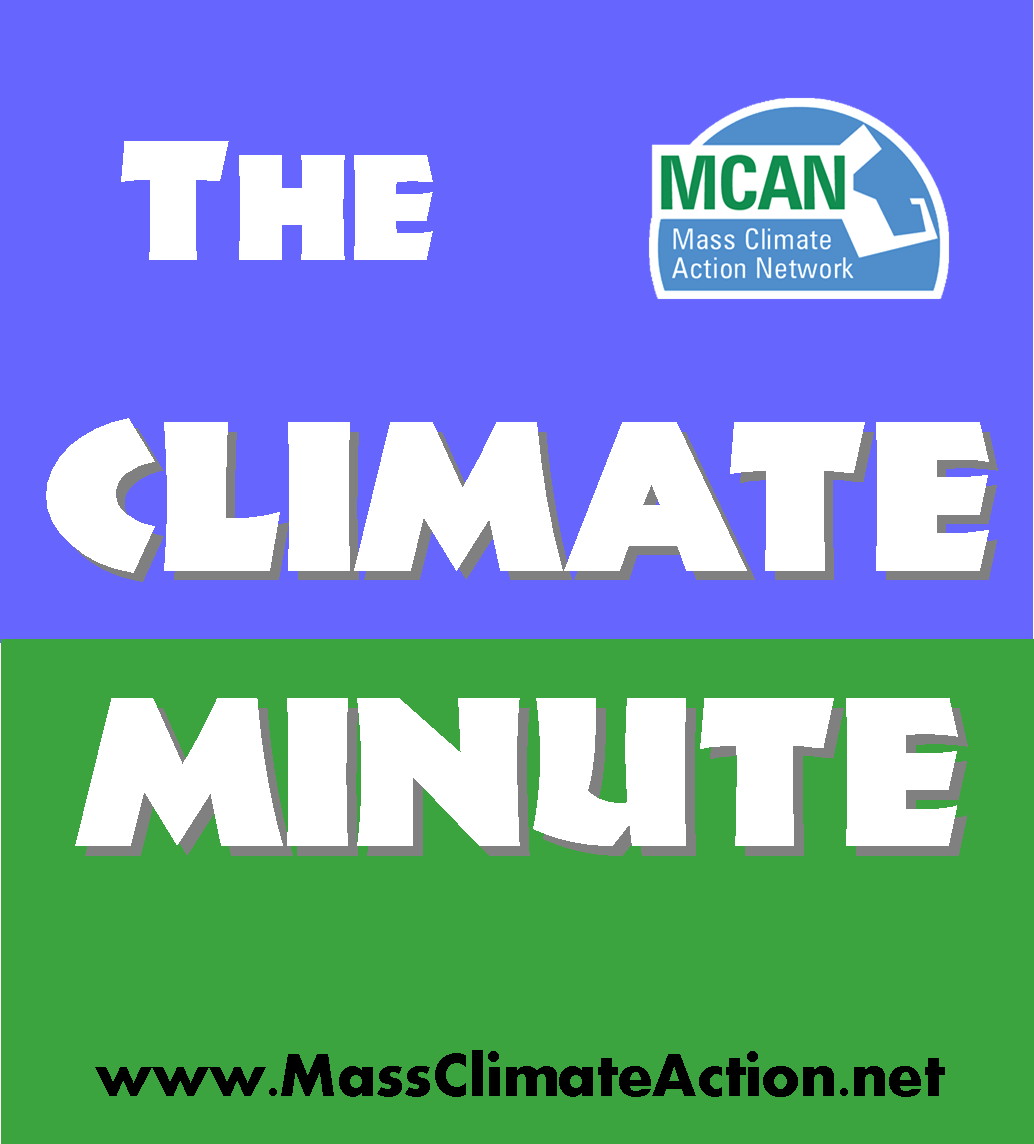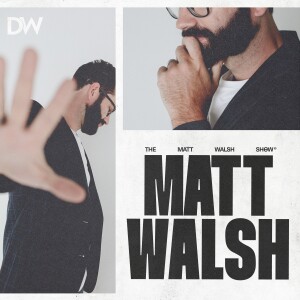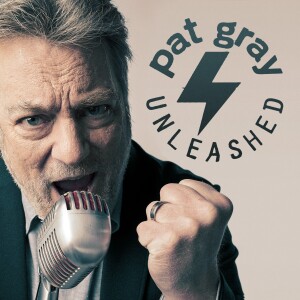

Sorry for that rather befuddling title, but today Ted and I talk about the State Department's (DOS) Draft Supplemental Environmental Impact Statement (DEIS) on the Keystone XL (KXL). Let's get right to the links pretty darn quick (PDQ...).
As always, click on the “MCAN Climate Minute” picture to the right to start the recording in a new window.
Last Friday the State Department released it's Draft Environmental Impact Statement for the Keystone XL pipeline segment from Canada...
Sorry for that rather befuddling title, but today Ted and I talk about the State Department's (DOS) Draft Supplemental Environmental Impact Statement (DEIS) on the Keystone XL (KXL). Let's get right to the links pretty darn quick (PDQ...).
As always, click on the “MCAN Climate Minute” picture to the right to start the recording in a new window.
Last Friday the State Department released it's Draft Environmental Impact Statement for the Keystone XL pipeline segment from Canada to Steele City Nebraska (the Texas portion of the pipeline already approved).
Essentially the State Department report finds that the pipeline would have little to no negative environmental impact, as the tar sands will be exploited either with or without the pipeline.
This is a story with many, many parts. First of all, many believe the findings are incorrect on their face. NRDC provided a compelling comment on that point.
We've also found interesting this story citing the connections between some of the consultants who worked on the report and the project proponents.
Among the chatter in the wake of the DEIS was NY Times columnist Joe Nocera's taking to task of James Hansen for his fixation on the pipeline.
Nocera's been a pretty strong proponent of the pipeline, so this latest story isn't surprising He takes Hansen to task though for the passion he has displayed on the pipeline, which alludes to a running discussion in the climate community about the lengths to which activists should go to wake the nation ("rouse the conscious of the nation" in the words of Frederick Douglas) to the threat of climate change and our inadequacy in addressing same.
Wen Stephenson (author of the "New Abolitionists" story we talked about a couple of weeks ago) has a piece in Grist this week about the risks being taken by young people -- getting arrested in opposition to Keystone. Read the piece, it's an excellent look into the passion these young people feel for the climate crisis.
Yes, read the piece, but unless you want to be discouraged don't read the comments. There are a couple of the loopy denialist comments, but the most dispiriting ones perhaps are from fellow progressives who are criticizing either the young people out there protesting and getting arrested, or criticizing those who are unable, for whatever reason, to make that level of commitment.
Creedo, an online activism site, is collecting pledges of people willing to be arrested (among a number of steps). At last check over 30,000 people indicated their willingness to risk arrest to stop the pipeline.
So speaking of commitment, what do we do about Keystone now?
Well, first of all, this report is a draft. It is out for a 45-day comment period and will be finalized and sent to the president shortly after the period ends. While it's highly unlikely that submitted comments will change the outcome of the report, you can be sure the political folks in the White House would pay attention to thousands of comments expressing deep disagreement with the conclusions of the report. Remember -- this report is intended to provide the President with a specific piece of information; the projected environmental impact of Keystone. The President's final decision should encompass the totality of the Keystone decision.
If we have the President of Denver 2008, and of the inaugural speech in 2012 and of the 2013 State of the Union -- that President would reject Keystone regardless of the calculation the State Department report makes that the tar sands would just be exploited anyway so there's little environmental impact from the pipeline. That President we heard in Denver, or on the steps of the Capitol Building, or in the House Chamber understands that we are not going to do anything that will further endanger the climate. We should not be a part of it. If the Canadians want to build a pipeline through their part of the Rockies, or ship the tar sands by rail -- that's on them. But we're not going to help release million and millions of tons of greenhouse gases into our already compromised atmosphere.
Anyone may submit comments on the DEIS at keystonecomments@state.gov.
This Sunday (after our conference, which ends at 5pm), 350.org will have a video chat with Bill McKibben to discuss next steps in the fight against the pipeline. Local organizations are hosting gatehrings to take part in the videocast, find the local one near you on the 350 website.
The 350Massachusetts event will be held at First Parish Church in Cambridge at 7pm. For more information check out our calendar listing here.
In other news (what, there was other news?), the President finally got around to nominating Gina McCarthy to head EPA and Ernest Moniz to be the next Secretary of Energy. Moniz has been criticised by some for his affection for nuclear power and unwillingness to categorically dismiss fracking (although less reported is his belief that fracking only buys us time to full deploy clean energy sources).
You'll have to listen to the podcast to get our views on McCarthy and Moniz, which actually have some relevance as we each know one of them.
You can read about the alarmingly high jump in atmospheric CO2 in the past year here. The discussion of how climate change might have influenced the Arab Spring and particularly the current civil war in Syria.
The film Greedy Lying Bastards, a documentary on the war against climate change action, is out can be found at the Coolidge Corner threater and the AMC Lowes in the Liberty Tree Mall in Danvers. Here are The Boston Globe and New York Times reviews.
Finally; got a denier you want to annoy? Share with them this story about Tambora which erupted in 1816 and created "the year without a summer." Or perhaps how the eruption of Krakatoa impacted the weather for months and months halfway across the globe. So, one volcanic eruption can cancel summer for a year, while 6 billion humans burning coal and driving SUVs can have no impact on the climate?
It's been a pleasure sharing climate news and views with you as always. You know, you can subscribe to our iTunes feed and get our podcasts automatically here. Feel free to give us your thoughts on our Facebook page, or through old-fashioned email.
Remember, for climate activities near you check out our MCAN climate action calendar. You can enter events as well as browse for interesting things to do.
As always -- remember, for these reasons we have discussed, the United States must place a price on carbon. See you next week.
View more
Comments (3)
More Episodes
All Episodes>>Create Your Podcast In Minutes
- Full-featured podcast site
- Unlimited storage and bandwidth
- Comprehensive podcast stats
- Distribute to Apple Podcasts, Spotify, and more
- Make money with your podcast
It is Free












